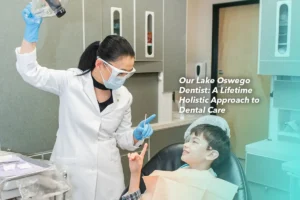Cigarette smoking causes about one of every five deaths in the United States each year. Smoking also adversely affects your oral health. I am going to explain how smoking affects your oral health and why it is crucial to your overall health that you quit.
Oral Health Problems for Smokers
Smoking is bad for the whole body, especially for the mouth.
Smoking decreases the amount of oxygen in the blood and thereby to the mouth. Reduced oxygen can cause two different problems:
1) Because oxygen is vital to preventing and healing infections when there is less oxygen in the blood due to smoking, infections can get out of control, causing gum disease.
2) Smoking causes a constriction of blood vessels. Therefore, a smoker experiences less inflammation and bleeding even when gum disease may be present. This can give false security that the gums are okay when they are not.
There are many other common ways that smoking can affect your oral health, such as:
- Increased buildup of plaque and tartar that can lead to cavities and tooth loss
- Increased occurrence of an exposed tooth root, which leads to painful eating and sensitivity to hot and cold
- Increased likelihood that you will develop an infection in the teeth, gums, or mouth due to a suppressed immune system
- Inability to quickly heal after a complex dental procedure such as oral surgery or wisdom tooth extraction
- Some treatment options, such as treatment used for periodontal disease, may be less effective
- Teeth can become thin and brittle
- Teeth will develop a yellow or brown color
- Inflammation can lead to the swelling of salivary glands in the mouth
- Increased risk of developing oral cancer
Smoking Causes Bone Loss
It is common knowledge that smoking damages the lungs. But many people do not realize that it can also cause bone loss. Smoking lowers estrogen levels in both men and women. Estrogen is essential because it helps the bones hold calcium and other minerals that make them strong.
What You Can Do
The best thing you can do would be to quit smoking, but that is generally easier said than done! Let’s start with the things you can immediately do:
- Maintain your oral hygiene. You can do this by brushing at least two times a day (preferably after meals) for at least two minutes each time and flossing to remove food particles stuck between your teeth that a toothbrush can’t reach.
- Use good toothpaste to strengthen your teeth, and rinse with mouthwash. Some products such as neem oil and coconut oil can also help. Maintaining a healthy diet rich in minerals is beneficial as well.
- Use oral probiotics. Oral probiotics help increase the good bacteria in your mouth, which combats the harmful bacteria. You can choose from many products on the market.
- Keep your dental appointments! Depending on a patient’s teeth and gums, we will make a treatment plan and schedule several appointments to tackle the problem.
How We Can Help
As a holistic dental practice, we understand the toll smoking has on your oral and overall health. We are not just here to treat the effects of smoking on your oral health.
We are here to educate you on how you can address your smoking habit to prevent further harm. Just as a dentist will tell you to cut back on sugary foods or brush your teeth more often, a good dentist will also inform you that your nicotine use will cause you harm.
Summary
Smoking affects your oral health in a very negative way. It also affects your general health. As holistic dentists, we are interested in treating the entire problem, not only focusing on one aspect. Contact us and we will work with you to overcome smoking and get you on the right track for a healthy mouth and body.
Sincerely,
Dr. Manami Yamaguchi




